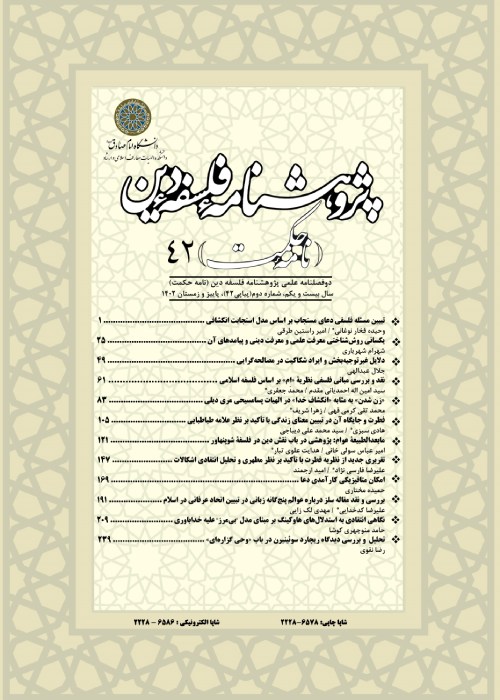Epistemic Contextualism and Semantics of knowledge attributions
Author(s):
Abstract:
Epistemic Contextualism is a recent view in epistemology that has evolved primarily as a response to skepticism. Epistemic Contextualism is a semantic thesis and is the view that the truth conditions for knowledge attributions, sentences of the form “S knows that P” and “S doesn’t know that P”, can vary across contexts as a result of shifting epistemic standards. This view, in fact, is a linguistic turn in epistemology. Contextualist seeks to explained epistemological problems by semantics of knowledge sentences. In this paper I will examine one of the semantics foundations of Contextualism, that is epistemic standard as a unarticulated constituent, and will show that their epistemic claim is controversial and unpleasant.
Language:
Persian
Published:
Philosophy Of Religion Research, Volume:7 Issue: 1, 2010
Page:
35
magiran.com/p700567
دانلود و مطالعه متن این مقاله با یکی از روشهای زیر امکان پذیر است:
اشتراک شخصی
با عضویت و پرداخت آنلاین حق اشتراک یکساله به مبلغ 1,390,000ريال میتوانید 70 عنوان مطلب دانلود کنید!
اشتراک سازمانی
به کتابخانه دانشگاه یا محل کار خود پیشنهاد کنید تا اشتراک سازمانی این پایگاه را برای دسترسی نامحدود همه کاربران به متن مطالب تهیه نمایند!
توجه!
- حق عضویت دریافتی صرف حمایت از نشریات عضو و نگهداری، تکمیل و توسعه مگیران میشود.
- پرداخت حق اشتراک و دانلود مقالات اجازه بازنشر آن در سایر رسانههای چاپی و دیجیتال را به کاربر نمیدهد.
In order to view content subscription is required
Personal subscription
Subscribe magiran.com for 70 € euros via PayPal and download 70 articles during a year.
Organization subscription
Please contact us to subscribe your university or library for unlimited access!


